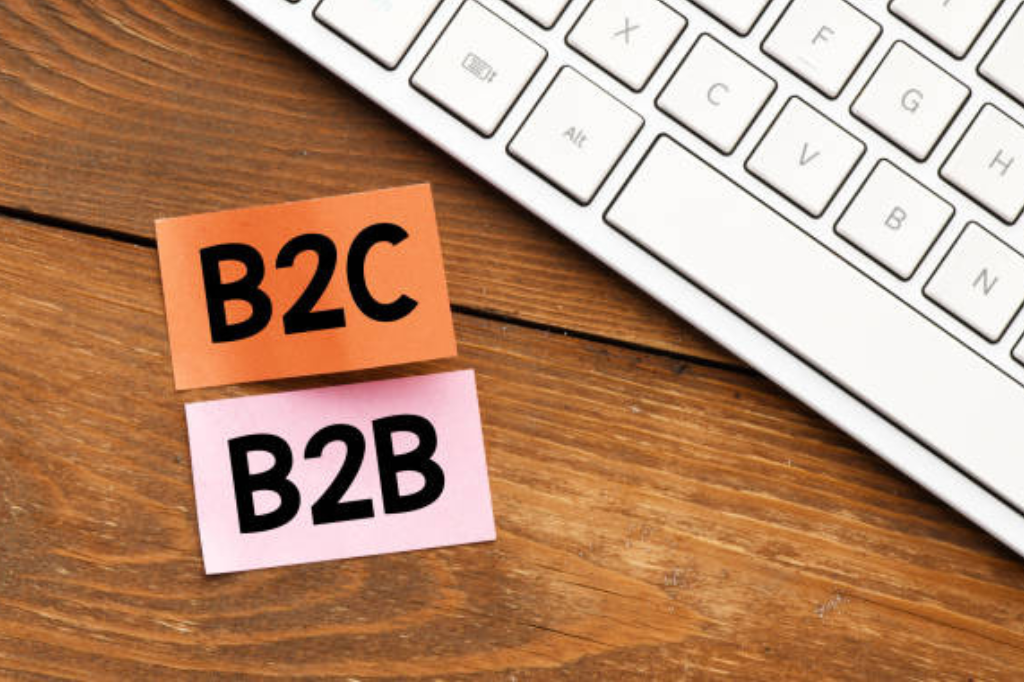What is Difference Between B2B & B2C Marketing
B2B and B2C marketing are two distinct marketing strategies that serve different purposes and target different audiences. B2B marketing focuses on building relationships with other businesses and demonstrating the product or service’s value in terms of efficiency and ROI. B2C marketing focuses on building emotional connections with individual consumers and appealing to personal preferences and lifestyle choices.

B2B Vs. B2C Marketing: What’s the Difference
B2B Marketing
B2C Marketing
Customer Relationships in B2B Vs B2C Marketing
In B2B marketing, customer relationships are often built on trust and a deep understanding of the customer’s business operations and challenges. Building long-lasting relationships is crucial in B2B marketing, as B2B sales cycles are typically longer and involve multiple decision-makers. B2B marketers use a variety of tactics to build and maintain customer relationships, such as offering customized solutions, providing excellent customer service, and consistently delivering high-quality products/services.
In B2C marketing, customer relationships are often built on emotional connections and brand loyalty. B2C marketers use consumer research and data analysis to understand their target audience’s needs, preferences, and behavior. B2C marketers use a variety of tactics to build and maintain customer relationships, such as offering promotions and discounts, providing personalized experiences, and leveraging social media and other digital channels to engage with customers.
Overall, B2B and B2C marketing aim to build strong, lasting relationships with customers by understanding their needs and delivering solutions that meet them.
Audience Targeting In B2B & B2C Marketing
In B2B marketing, audience targeting is often focused on decision-makers within specific industries or organizations. B2B marketers use demographic, firmographic, and technographic data to identify and target potential customers. Demographic data includes job title, company size, and industry. Firmographic data includes company revenue, location, and the number of employees. Technographic data includes information on a company’s technology stack and usage patterns. B2B marketers use this information to create targeted messaging and campaigns that resonate with their target audience’s specific needs and challenges.
In B2C marketing, audience targeting often focuses on individual consumers and their characteristics and behavior. B2C marketers use demographic, psychographic, and behavioral data to understand their target audience’s preferences, needs, and habits. Demographic data include age, gender, income, and education level. Psychographic data includes information on personality, values, and lifestyle. Behavioral data includes information on a consumer’s purchasing behavior and brand loyalty. B2C marketers use this information to create targeted messaging and campaigns that resonate with the specific needs and desires of their target audience.
Overall, both B2B and B2C marketers use audience targeting to reach the right people with the right message at the right time, thereby increasing the chances of success for their marketing campaigns.

What are the Advantages and Disadvantages of B2C
Advantages of B2C (Business-to-Consumer) marketing
Disadvantages of B2C marketing
What are the Advantages and Disadvantages of B2B
Advantages of B2B (Business-to-Business) marketing
Disadvantages of B2B marketing
Conclusion
In conclusion, both B2B and B2C marketing have their own unique advantages and disadvantages, and the choice between the two depends on the specific needs and goals of the company. B2B marketing is best suited for companies selling products or services to other businesses, while B2C marketing is best for companies targeting individual consumers.
Join the revolution of digital marketing and see the difference between B2B and B2C strategies. Let SPEEDFORCE DIGITAL show you how to enhance your business and reach new heights of success. Contact us today to take your marketing game to the next level.
Frequently Ask Questions
1. How does the target audience impact B2B vs. B2C marketing strategies?
The target audience significantly impacts B2B and B2C marketing strategies. In B2B marketing, the target audience consists of other businesses and decision-makers within those businesses, so the focus is on building relationships and demonstrating the value of the product or service in terms of ROI and efficiency. In B2C marketing, the target audience is made up of individual consumers, and the focus is often on building emotional connections and appealing to personal preferences and lifestyle choices.
2. What are common B2B marketing channels?
Common B2B marketing channels include content marketing, email marketing, trade shows and events, SEO, referral and word-of-mouth marketing, social media, webinars, and video content.
